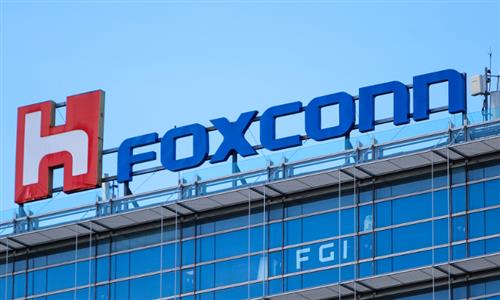China’s breakthrough in semiconductor equipment shows US tech blockade is ineffective

A worker tests semiconductor chips in a factory in Yancheng, East China's Jiangsu Province, on April 14, 2023. Photo: VCG
The "China Optics Valley" WeChat account announced on Tuesday that Chinese high-tech enterprise Wuhan Huagong Laser Engineering, a subsidiary of Shenzhen-listed HGTECH Group, has produced China's first high-end wafer laser cutting equipment with fully localized core components.The high-accuracy and key equipment in semiconductor manufacturing, which decides the performance and the cost of the semiconductor chips, is a key technology breakthrough the Chinese technology company in the field of semiconductor manufacturing equipment against the backdrop of the US' continuous escalation of the blockade in semiconductor and other high-tech sectors.
This is the latest example: As many experts in Western countries have long warned, the US' escalating chip war against China may backfire - pushing China to make progress in domestic manufacturing of advanced semiconductors, while harming technology companies in the US and its allies.
Although Washington appears eager to improve relations with Beijing and has sent a string of officials to China recently, the US is currently focused primarily on limiting China's ability to develop or obtain access to more advanced microchips. Although Washington's rationale behind this move is that restricting China's chips will "help protect national security and foreign policy interests." In reality, this approach represents blatant technological suppression and containment, the purpose of which is to allow the US to maintain its dominant position in this technological field.
The US introduced comprehensive semiconductor export controls to China in October last year. It also wooed allies such as Japan and the Netherlands to jointly launch a semiconductor equipment ban on China. The US attempts to form a near-full-fledged blockade of China's ability to buy semiconductors and the equipment needed to make cutting-edge chips.
Recently, the US government is reported to be considering restricting Chinese companies' access to American cloud computing services, and the US is also reportedly considering new restrictions on exports of AI chips to China.
While the US is investing huge money to increase domestically manufactured advanced chips, it has also continuously upped its coercion and grasp over semiconductor companies in Japan, the Netherlands, and South Korea, in order to exclude China from the supply chain of the global chip industry chain.
However, there are increasing signs that the escalating chip war launched the US is becoming increasingly ineffective in stifling the development of China's chip industry. On the contrary, Washington's move is putting some big US companies and other major semiconductor companies in other countries in a difficult position.
The US' chip war has caused damage to chipmakers that have been making money in the Chinese market. This has caused dissatisfaction among these companies, with a growing number searching for ways to bypass the US semiconductor export restrictions on China.
ASML CEO Peter Wennink said in an interview in April that the US-led semiconductor export control measures against China will eventually lead China to successfully developing its own technology. Intel and Nvidia continue to push purpose-built chips for training AI systems in China amid US export restrictions, according to media reports.
Some Western experts have long been warning that the US restrictive measures need to be implemented carefully. If more stringent restrictions are further introduced, the purpose of restricting the development of China's chip technology may be counterproductive. The US needs to be careful about enforcing restrictions, or risk harming interests of US companies.
The last but not the least, the breakthrough made by Chinese company Huagong also proves that China's independent research and development path is efficient. While seeking international cooperation in the semiconductor field, China will also keep pursuing its own technological progress. The more the US suppresses the more it stimulates China's pursuit of technological innovation, which will further sharpen China's technological competitiveness.
The author is a reporter with the Global Times. bizopinion@globaltimes.com.cn



